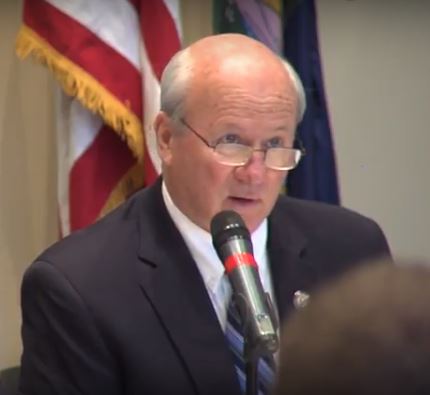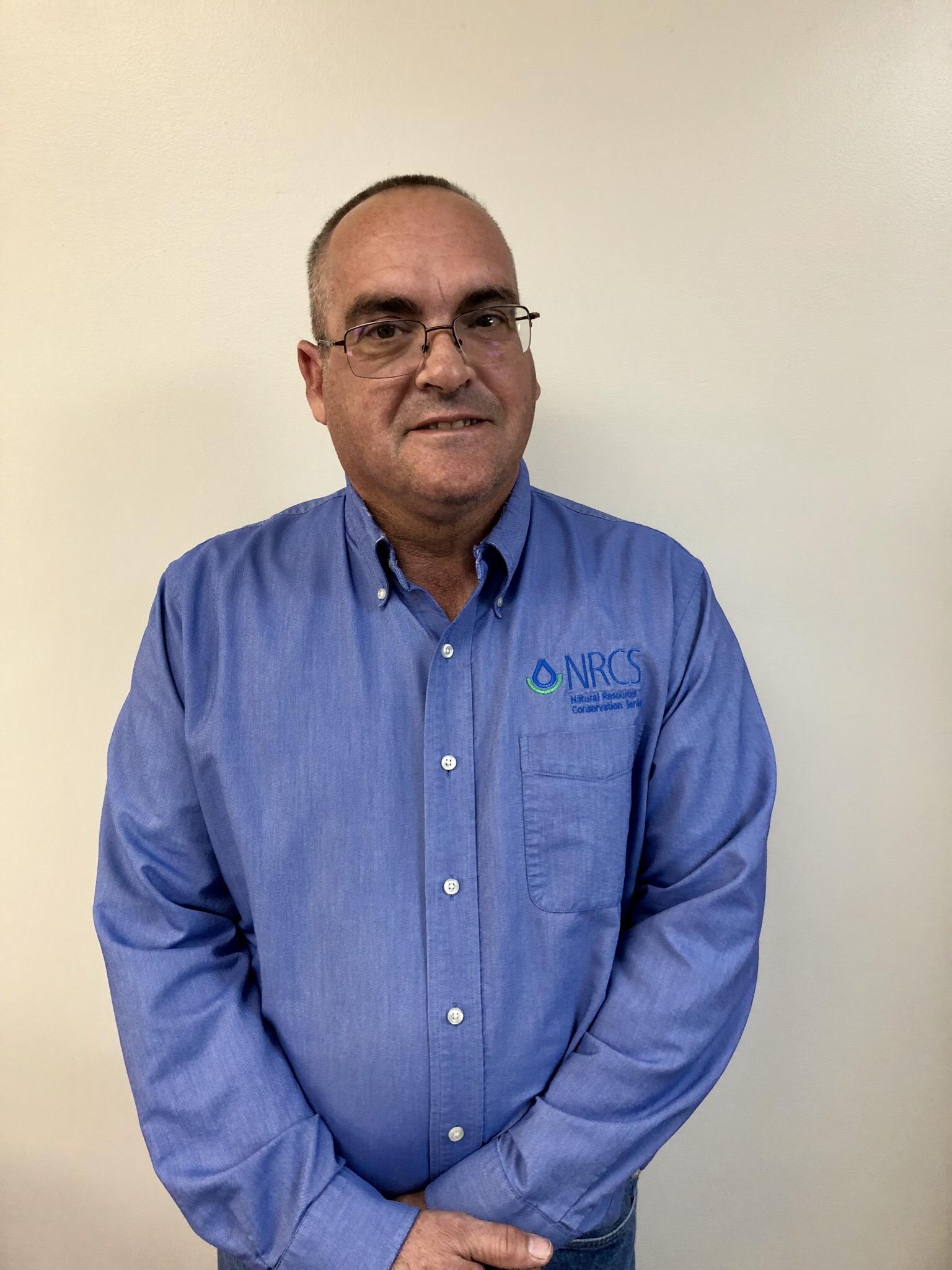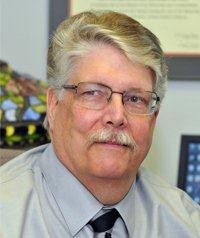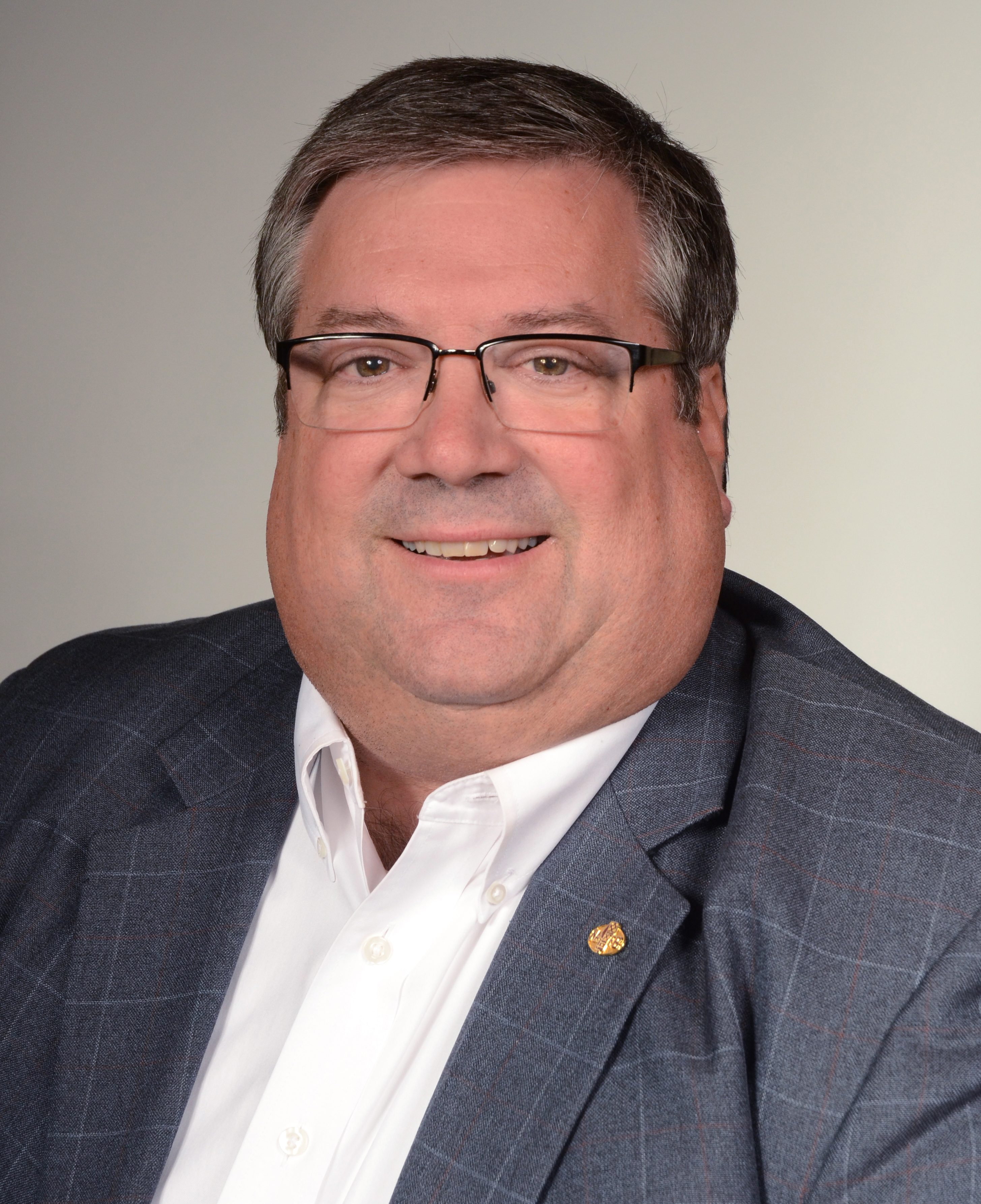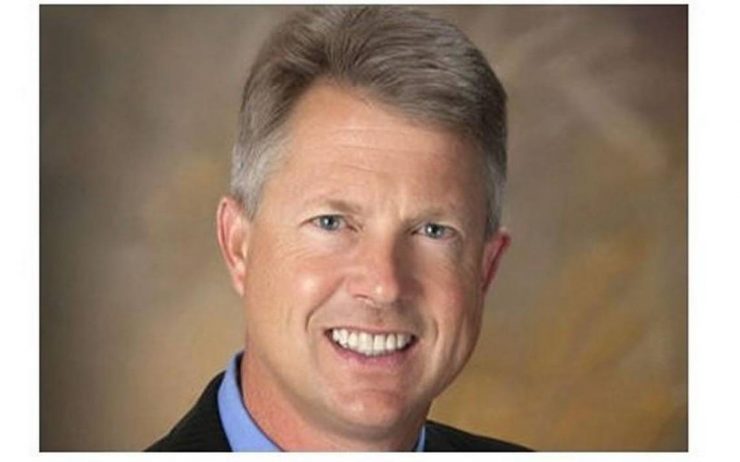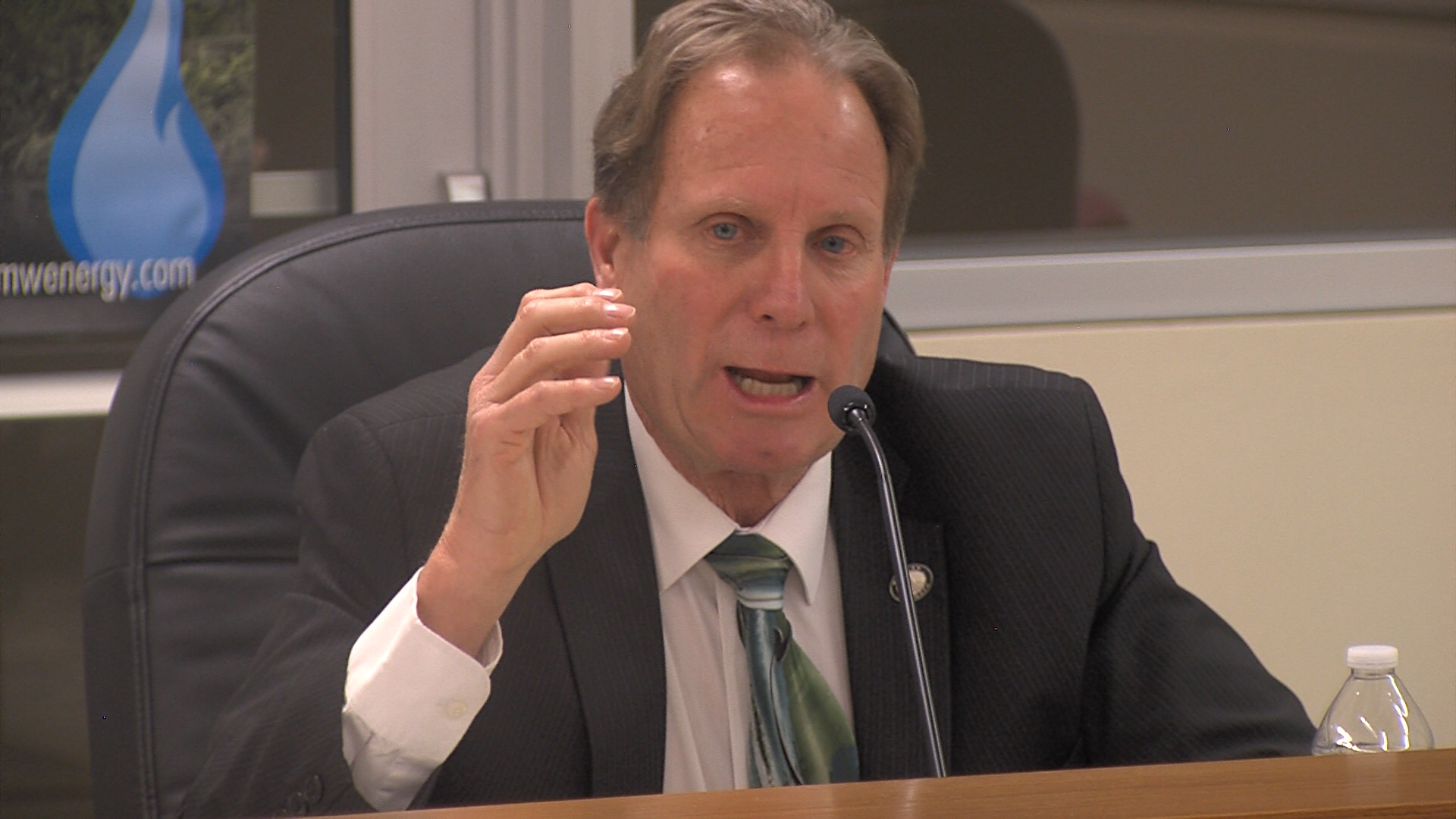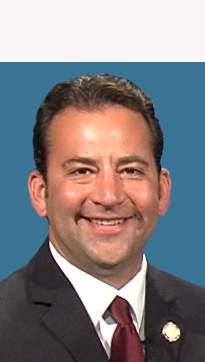
KANSAS SAFE AND SECURE SCHOOLS ACT
On Monday, March 19th, the House Appropriations Committee past HB 2773 out of committee and on its way to the full house. The Kansas Safe and Secure Schools Act, a comprehensive approach to making schools safer for our kids by ensuring coordination with schools and local law enforcement to improve school security infrastructure. Principally, HB 2773 would do the following:
1. Coordinate with the Kansas State Board of Education and other agencies to develop statewide standards for safe and secure school buildings.
2. Empower local school districts to coordinate with local law enforcement and emergency management agencies to review and evaluate current building infrastructure policies and procedures.
3. Establish the Safe and Secure Schools Grant Program with funds that can be used for improvements to any facet of the school safety and security plan including infrastructure and training.
4. Provide standardized firearm safety education programs that may be offered by school districts.
5. Appropriate funds to the Department of Education, which will be used for two FTE positions to review and evaluate school safety and security plans. The provisions of this bill would encourage schools to make improvements, such as reinforced doors, additional security cameras, and training opportunities to enhance the overall security of school grounds. The Safe and Secure Schools Act will advance communication between local school districts and law enforcement. A safe and secure learning environment is one of the highest priorities in our state, and this establishes an opportunity for all Kansas school districts. Additionally, for the purposes of promoting the safety and protection of students via education, the State Board of Education would be required to establish curriculum guidelines for a standardized firearm safety education program.

Representative Mastroni would like you to know about the Page Program at the State Capitol. It is an awesome experience for all our young students to know hands-on how the Legislative Branch of the Kansas government works, how laws are introduced, voted on and passed. Students who desire to Page, please call 785-296-7396 for more details. Pages must be between the age of 12 to 17.
I hope to hear from you soon.
OFFICIAL STATE ROCK, MINERAL, GEMSTONE, AND FISH
HB 2650, which would designate the official state rock of Kansas as limestone, the official state mineral as galena, and the official state gemstone as jelinite amber. The bill was brought forward by Casey Friend, a fourth grader attending Trailwood Elementary School in Overland Park, Kansas, who stated that he has always been interested in geology. He conducted his own research to discover that Kansas had no designated official state rock, mineral, and gemstone and therefore wanted to make a change. Friend explained that limestone is commonly found in Kansas, galena attracted a large mining workforce to Kansas, and jelinite amber was discovered in the bedrock near the Smoky Hill River. Jackson Svaty, a nine-year-old from Topeka Collegiate School also testified, principally in support of the state gemstone provisions of the bill. Svaty explained how difficult it is to obtain jelinite amber, as it is only found at the bottom of Kanopolis Lake.
Chris Tymeson, chief legal counsel for the Department of Wildlife, Parks, and Tourism expressed his support for the bill’s passage. He also noted how Kansas is one of four states that has yet to designate a state fish. The committee decided to amend the bill to label the channel catfish as the official state fish, as it is found in almost every body of water in Kansas.
Due to the steps taken to improve transparency of the legislative process, Friend’s classroom was able to watch and listen to their classmate testify before the committee and were even able to experience HB 2650 pass out of committee favorably.
The bill passed the full house on March 22, 2018, and will be in the Governor’s office for his consideration this coming week.

CAITLIN’S LAW
Governor Jeff Colyer M.D. signed Caitlin’s Law on March 9, 2018. Pictured above are Caitlin’s mother, father, and sister along with the legislators that sponsored Caitlin’s Law. Caitlin (24 years old) left her home to drive to the grocery store and was hit by a drunk driver and was killed. The driver had previously been convicted of drunk driving and had an ignition interlock system installed in his vehicle that he had to blow in to start his vehicle. Because of his intoxicated condition, he borrowed a friends car and was driving it when he crashed into Caitlin’s car.
Caitlin’s Law creates two new offenses under the general crimes of involuntary manslaughter and aggravated battery. The law will provide for greater penalties for those who drive under the influence at a time they are not entitled to drive because of a prior offense of driving while under the influence when death or serious injury or dismemberment occur because of a crash. The law will hold those who choose to drive while under the influence and ignore restrictions or elimination of their privilege to drive because of a past instance of driving under the influence, where serious injury or death results, accountable for their behavior.
DROUGHT CONDITIONS, EXECUTIVE ORDER
Governor Jeff Colyer, M.D. signed Executive Order 18-11, which officially declares a Drought Watch. Drought Warning, or Drought Emergency in several counties throughout the state. The order also authorizes and directs agencies to implement appropriate responses under the Governor’s Drought Response Team.
Drought Watch counties: Anderson, Atchison, Bourdon, Brown, Cherokee, Cheyenne, Clay, Cloud, Coffey, Crawford, Decatur, Doniphan, Douglas, Franklin, Geary, Gove, Graham, Jackson, Jefferson, Jewell, Johnson, Labette, Leavenworth, Linn, Logan, Lyon, Marshall, Miami, Mitchell, Nemaha, Norton, Osage, Osborne, Ottawa, Phillips, Pottawatomie, Rawlins, Republic, Riley, Rooks, Shawnee, Sheridan, Sherman, Smith, Thomas, Wabaunsee, Washington, Wyandotte.
Drought Warning counties: Allen, Butler, Chautauqua, Chase, Cowley, Dickinson, Elk, Ellis, Ellsworth, Greeley, Greenwood, Harvey, Lane, Lincoln, Marion, McPherson, Montgomery, Morris, Neosho, Ness, Rush, Russell, Saline, Scott, Trego, Wallace, Wichita, Wilson, Woodson.
Drought Emergency counties: Barber, Barton, Clark, Comanche, Edwards, Finney, Ford, Grant, Gray, Hamilton, Harper, Haskell, Hodgeman, Kearny, Kingman, Kiowa, Meade, Morton, Pawnee, Pratt, Reno, Rice, Sedgwick, Seward, Stafford, Stanton, Stevens, Sumner.
ECONOMIC INCENTIVES TRANSPARENCY
House Sub. for HB 2572 requires that the Department of Commerce collect data from economic development incentive programs that provide more than $50,000 in annual incentives. This data from multiple years would be stored in a database and would be searchable on the Department’s website. Specific information would be provided, including names or counties and recipients who receive benefits from various programs, including STAR bonds. Descriptions and histories of the programs, along with purpose, goals, and qualifications would also be included. Another component is the program cost and returns on investment. On Thursday, the House Committee of the Whole debated the measure. On Friday, the bill passed the House with a vote of 114-7.
INDUSTRIAL HEMP RESEARCH
The Agriculture Committee heard testimony on SB 263, which would allow the Kansas Department of Agriculture to cultivate and research the uses of industrial hemp. Principally, the research would be conducted in effort to analyze its required soils, growing conditions, harvest methods, and the potential for an industrial hemp market in Kansas. Additionally, a pilot program in Russell County would be established to study its effect on economic development and the development of industrial hemp products. A number of Representatives expressed their support, as well as the Department of Agriculture, the Sierra Club, small businesses, and private citizens. Data was included that showed hemp uses 66% less water than corn, requires virtually no pesticides or fertilizers, and has great potential to improve agricultural and economic activity in rural Kansas. Opponents argued that the provisions of the bill would lead to the legalization of marijuana, while others asserted that this bill would not go far enough concerning hemp.
In March of 2017, the House passed HB 2182 on a vote of 103-18. HB 2182 differs from SB 263, in that SB 263 solely allows the Department of Agriculture, either alone or in coordination wit a state institution of higher education to grow, cultivate, and research industrial hemp. Earlier in February, the Senate approved this bill with a final vote count of 36-3. The committee passed SB 263 this week, and has yet to be considered by the Committee of the Whole.
WILDFIRES
Over the past few weeks, fires have burned across the state, fueled by dangerously dry conditions and strong winds. Governor Jeff Colyer, M.D. issued disaster declarations for the following counties: Barber, Clark, Ellis, Greenwood, Harper, Kingman, Logan, Reno, Smith, and Stevens. On Tuesday, firefighters battled a wildfire in Greenwood County. On Wednesday fires were fought in Wabaunsee County, near I-70 and Vera Road, and in Hamilton County, along the Colorado border. Kansas Army National Guard helicopters delivered water through aerial support for some of the fires.
According to a Wednesday press release from the National Guard, “Approximately 50 fires were reported to the State Emergency Operations Center in Topeka since Monday, burning more than 25,000 acres. Aerial and ground firefighting resources were coordinated by the SEOC through the Kansas Forest Service and Kansas Army National Guard to augment fire suppression efforts by local responders. Soldiers of the Kansas National Guard’s 1st Battalion, 108th Aviation, along with troopers from the Kansas Highway Patrol and personnel from the Kansas Forest Service provided aerial and ground support to local crews battling fires in Ellis and other counties yesterday and the Greenwood County fire today.
The State Emergency Operations Center in Topeka is providing support and coordination of state and federal resources as requested by the counties. County emergency managers may continue to report incidents and request state assistance to augment local response and recovery actions through the state’s 24-hour emergency notification line.
DRIVER’S LICENSE RENEWALS AND VISION SCREENINGS
On Tuesday, March 6, 2018, Rep. Mastroni carried HB2606 onto the floor of the house for debate. The bill specifies the vision test requirements for renewals. A current requirement, that a driver’s license examiner administer an eye exam before the renewal of a driver’s license would be waived under certain conditions: (1) online applicant must be at least 18 years old and less than 50 years old; (2) must certify under penalty of the law that their vision meets requirements in continuing law; (3) must certify under penalty of the law that applicant has received an examination by a licensed ophthalmologist or licensed optometrist within the previous year; and, must authorize the exchange of information (medical and vision) between the Division of Vehicles and applicant’s ophthalmologist or optometrist.
The bill increases the convenience of online renewals. The House approved the bill with a vote of 120-2. The bill is in the Senate and had a hearing on March 15, 2018. No further action at this time.
FLOOR ACTION
HB 2757 – Due process for terminating teachers’ contracts. This bill would grant due-process for Kansas teachers who have completed two to three consecutive years of employment and have been offered a subsequent contract. Final Action, 73-48. Rep. Mastroni voted in favor of the bill. The bill is currently in the Senate Education Committee as of March 9, 2018.
HB 2758 – Publication of school district bullying policies. This bill would require school districts’ anti-bullying plans to include consequences and appropriate remedial action for a person who engages in bullying, cyberbullying, or similar forms of harassment. Additionally, the bill would require a procedure for reporting such bullying, including anonymous reporting. Such plans must be adopted and implemented by the local school board and must be published on the district’s website. Final Action, 120-1. Rep. Mastroni voted in favor of the bill. The bill is in the Senate Education Committee as of March 9, 2018.
HB 2572 – Requiring the department of commerce to create a database of economic development incentive program information. This bill would require the Department of Commerce to establish a database for the purpose of disclosing information pertaining to the state’s economic development incentive programs. Final Action, 114-7. Rep. Mastroni voted in favor of the bill. Bill is currently in the Senate Committee on Assessment and Taxation.
SB 405 – Clarifying animal conversion units for poultry facilities with dry manure systems. This bill would establish the animal unit measurement calculation for chicken facilities that use a dry manure waste system as the number of laying hens or broilers, multiplied by 0.003. The bill would also require a confined chicken facility to obtain a federal permit if the facility uses a dry manure system and confines 125,000 or more broilers or 82,000 or more laying hens. Rep. Mastroni voted in favor of the bill and it was enrolled and presented to the Governor on Friday, March 16, 2018, for his consideration.
HIGHLIGHTS FOR LAST WEEK
• Monday March 12: House Judiciary Committee: Hearings on SB 281 Protection orders for human trafficking victims under the protection from stalking, sexual assault or human trafficking act and SB 309 Providing for the disposition of judicial branch docket fees in FY 2020 and FY 2021: 3:30,
Rm 112-N
• Tuesday March 13: House Federal and State Affairs Committee: Hearing on SB 307 Amendments to the Kansas amusement ride act concerning home-owned amusement rides and agritourism activities: 9:00, Rm 346-S
• Tuesday March 13: House K-12 Education Budget Committee: Hearing on HB2445 Amending the Kansas school equity and enhancement act regarding local option budget provisions, certain weightings, capital outlay expenditures and repealing provisions of the CLASS act: 1:30, Rm 346-S
• Wednesday March 14: House Health and Human Services Committee: Hearing on: SB 312 Licensure of dental therapists: 1:30, Rm 546-S
• Wednesday March 14: House Agriculture Committee: Hearing on SB 263 Creating a program to research the use of industrial hemp: 3:30, Rm 582-N
• Wednesday March 14: House Taxation Committee: Hearings on HB 2569 concerning income taxation; doubling the standard deduction for the tax year 2018 and all tax years thereafter and HB 2761 allowing an individual to itemize deductions in Kansas despite not itemizing on their federal return: 3:30, Rm 346-S
• Friday March 16: HB 2516 – Providing immunity from civil liability for damage to a motor vehicle related to the rescue of a person or animal. The bill creates the law providing immunity under specified circumstances when a person enters a vehicle, by force or otherwise, to remove a vulnerable person or animal.
Final Action, March 15, 122-1
HB 2527 – Creating the crime of unlawful acts involving automated sales suppression devices manufacturing, creating, designing, updating, repairing, using, or possessing certain automated sales suppression device. The bill was requested for introduction by the Kansas Department of Revenue. Final Action, March 15, 123-0
SB 335 – Including savings and loan associations and savings banks in the state banking code and repealing the savings and loan code. The bill amends and creates the law to incorporate savings and loan associations and savings banks into the State Banking Code. Existing Savings and Loan Code is repealed. The bill was requested for introduction in the Senate Financial Institutions and Insurance Committee by the Kansas Bankers Association. The House Committee on Financial Institutions and Pensions Committee amended the bill to clarify references to mutual banks.
Friday March 16: Joint Meeting of the House K-12 Education Budget Committee and Senate Select Committee on Education Finance: Presentation on Dr. Lori Taylor’s Cost Study by Jeff King and Curtis Tideman, Attorneys: 1:00, Rm 346-S.
THIS WEEK’S HIGHLIGHTS
* Monday, March 19: Appropriations:
Discussion on HB 2773 – Creating the Kansas safe and secure schools act.
Discussion on HB 2468 – Appropriation revisions for FY 2018 and FY 2019 for various state agencies.
* Monday, March 19: Financial Institutions and Pensions:
HB 2698 – Establishing the Kansas children’s savings account program.
* Monday, March 19:
Joint K-12 Education Budget: Education Finance Presentation on: Dr. Lori Taylor and Jason Willis will present the overview of Dr. Taylor’s study. NOTE: starts at 12:00 p.m.
* Tuesday, March 20: Federal and State Affairs:
Hearing on HB 2687 – Creating the adoption protection act (proponents).
* Wednesday, March 21: Federal and State Affairs:
Hearing on HB 2687 – Creating the adoption protection act (opponents).
* Wednesday, March 21: K-12 Education Budget:
Informational Presentation by Commissioner Randy Watson and the State Department of Education on the following policy items included in the Governor’s budget proposal: increase of 150 school counselors, social workers, and school psychologists statewide; offering every Kansas high school student the choice of taking either the ACT college entrance exam or the WorkKeys assessments; and the education superhighway.
* Thursday, March 22: Water and Environment: Effects of Kansas Wildfires.
CONTACT INFORMATION
Rep. Leonard Mastroni, R-LaCrosse, 117th House Dist.
State Capitol Building
300 SW 10th – Room 167-W
Topeka, Ks 66612
Phone: 785-296-7396
[email protected]
Legislative Hotline 1-800-432-3924
